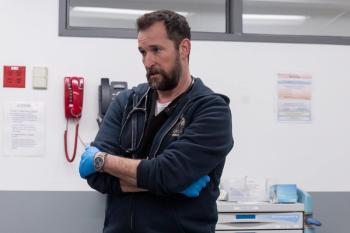
The CARE Act is leading to better patient outcomes. Hospitals can take lessons.
Most states have passed laws in recent years directing hospitals to foster more communication with caregivers. Researchers say those policies should prompt hospitals to consider more collaboration.
Policies designed to improve communication with patients and caregivers during hospitalization appear to be leading to better outcomes, researchers have found.
Researchers with the University of Pennsylvania examined the impact of state laws that bring the caregiver into the process. The
Since 2014, 42 states have passed laws requiring hospitals to be sure that clinicians are involved with the care of patients and preparations for discharge from the hospital. The laws are dubbed the Caregiver Advise, Record, Enable (CARE) Act.
“Improvements in patient experience persisted with each year since passage of this policy and were larger among hospitals with low baseline performance. These findings suggest that collaborating with caregivers during discharge planning is associated with better patient experience and outcomes,” the authors wrote.
Beyond assessing the impact of state-level policies, the authors contend that the study offers useful lessons for hospitals.
Hospitals and health systems should consider enacting policies that involve communicating with caregivers in other areas.
“The benefits of the CARE Act may also motivate hospitals to rethink how they collaborate with caregivers and improve transitions of care for patients and their caregivers living in underserved communities,” the authors wrote. “For example, caregiver involvement could be formalized across other domains of delivery, including emergency department visits or end-of-life care.”
If hospitals incorporate caregivers into more aspects of patient care, they could make progress on health equity, the researchers say. Caregivers can offer providers more insights into other factors affecting patients’ health.
- Read more:
Health equity can’t be a side hustle
The authors pointed out the increased importance of making sure caregivers are included in treatment and comfortable with discharge plans. As hospitals now keep patients for shorter periods of time, caregivers are handling some duties at home that often took place in the hospital setting.
Researchers studied 2,763 hospitals, including 2,188 hospitals in states with CARE Act policies, and 575 facilities in states without such policies.
In states with CARE Act policies, nurses and physicians typically did a better job of communication with patients, including the discharge plan, the researchers found.
Hospitals in states with CARE Act laws also enjoyed more favorable marks from patients, as patients were more likely to recommend the facility to others.
“Better communication may have improved patients’ perceptions of discharge preparedness, in turn, leading patients to report a better experience of care,” the authors wrote.
States have received federal aid to support the training of caregivers, but that money must be spent by the end of 2024, the authors note. Some caregivers aren’t aware of access to support services, so states are working to identify caregivers. As hospitals engage more with caregivers under the CARE Act, they could help those individuals get additional support.
In a separate
Some patients aren’t getting enough information about their medications, their care plan or why they will need follow-up appointments with physicians, according to that study.





























































































